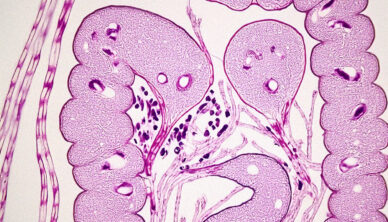Contents
Polyps & Cysts

Our gastroenterology and surgical specialists use advanced diagnostic tools to detect and manage polyps and cysts before they develop into more serious conditions.
What are Polyps & Cysts?
Polyps
Polyps are abnormal tissue growths that develop on the inner lining of organs, most commonly in the colon, stomach, uterus, or nasal passages. While many polyps are benign (non-cancerous), some can develop into cancer over time.
Cysts
Cysts are fluid-filled sacs that can form in various organs, including the liver, kidneys, pancreas, and ovaries. Most cysts are harmless, but some can cause pain, infection, or other complications if they grow too large or become inflamed
Potential Causes
- Genetic Factors – Conditions such as Familial Adenomatous Polyposis (FAP) or Lynch Syndrome can increase polyp risk.
- Chronic Inflammation – Long-term inflammation, such as gastritis or colitis, can contribute to polyp formation.
- Hormonal Imbalances – Hormonal fluctuations can lead to ovarian or endometrial polyps and cysts.
- Infections & Blockages – Cysts can develop due to blockages in glands or ducts.
- Lifestyle Factors – Obesity, smoking, and poor diet are linked to a higher risk of developing certain polyps.
Signs & Symptoms of Polyps & Cysts
Many polyps and cysts are asymptomatic, meaning they are only detected through routine screenings. However, symptoms may include:
- Unexplained Abdominal Pain – Particularly with larger cysts or colon polyps.
- Changes in Bowel Habits – Persistent diarrhea, constipation, or rectal bleeding.
- Bloating & Digestive Discomfort – Common with ovarian or pancreatic cysts.
- Blood in Stool or Urine – A potential sign of colon polyps, kidney cysts, or bladder polyps.
- Difficulty Swallowing – May indicate polyps in the esophagus or stomach.
- Pelvic Pain – Often associated with ovarian cysts or uterine polyps.
Diagnosis
At The Royal Buckinghamshire Hospital, we use state-of-the-art technology to detect and assess polyps and cysts early.
- Endoscopy & Colonoscopy – Used to identify and remove polyps in the digestive tract.
- Ultrasound & MRI Scans – Effective for diagnosing ovarian, liver, and kidney cysts.
- CT Scans – Provides detailed imaging for cysts in the pancreas, kidneys, or liver.
- Biopsy & Histopathology – Ensures polyps are non-cancerous and determines treatment options.
- Blood Tests – May help identify infection or tumor markers associated with cysts.
Treatment Options
Polyp Removal & Treatment
- Polypectomy (Endoscopic Removal) – A minimally invasive procedure to remove colorectal, stomach, or nasal polyps.
- Surgical Excision – For larger or high-risk polyps, especially in the uterus, bladder, or esophagus.
- Medication & Lifestyle Changes – In some cases, medication may help reduce polyp formation.
Cyst Treatment & Management
- Cyst Drainage (Aspiration) – A needle is used to drain fluid from large or painful cysts.
- Surgical Removal (Cystectomy) – Required for complex, infected, or suspicious cysts.
- Hormonal Therapy – Can be effective for ovarian cysts linked to hormonal imbalances.
- Observation & Monitoring – Some cysts, especially simple kidney or liver cysts, may not require immediate treatment but should be monitored.
Monitoring and Follow-Up Care
Regular screening is for early detection and management of polyps and cysts. Our follow-up care includes:
- Routine Colonoscopies – Recommended for patients with a history of polyps.
- Pelvic Ultrasounds & MRI Scans – To monitor ovarian, pancreatic, or liver cysts.
- Regular Specialist Consultations – Ensuring any changes in size or appearance are detected early.
- Diet & Lifestyle Guidance – Helping reduce the risk of polyp recurrence.
Arranging To Visit A Private GP
To discuss any worrying symptoms that might be an indication of Polyps & Cysts, then you can make an appointment with one of our private GPs. Appointments are available to everyone and can often be booked for the same day. There is no need to be registered with our The Royal Buckinghamshire Hospital, or live locally.
If you have insurance which covers a GP visit, we can in most cases invoice the insurer directly. Where you are paying directly, the cost for a 30 minute consultation is £100.
Any additional costs will always be discussed. They could apply if you are referred for an MRI scan, or to a consultant, or for other agreed decisions to support your health.
21 March 2025
